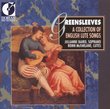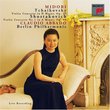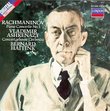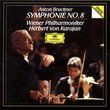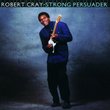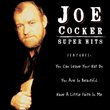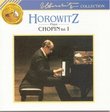| All Artists: Wolfgang Amadeus Mozart, Nikolaus Harnoncourt, Ann Murray, Eva Mei, Concentus Musicus Wien, Inga Nielsen, Roberto Sacca, Markus Schäfer Title: Mozart - Il Re pastore / Mei, Murray, Nielsen, Sacca, M. Schafer, Concentus musicus Wien, Harnoncourt Members Wishing: 0 Total Copies: 0 Label: Elektra / Wea Release Date: 1/28/1997 Genre: Classical Styles: Opera & Classical Vocal, Historical Periods, Classical (c.1770-1830) Number of Discs: 2 SwapaCD Credits: 2 UPC: 745099841928 |
Search - Wolfgang Amadeus Mozart, Nikolaus Harnoncourt, Ann Murray :: Mozart - Il Re pastore / Mei, Murray, Nielsen, Sacca, M. Schafer, Concentus musicus Wien, Harnoncourt
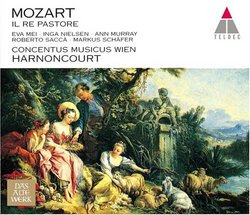 | Wolfgang Amadeus Mozart, Nikolaus Harnoncourt, Ann Murray Mozart - Il Re pastore / Mei, Murray, Nielsen, Sacca, M. Schafer, Concentus musicus Wien, Harnoncourt Genre: Classical
|
Larger Image |
CD DetailsSimilarly Requested CDs
|
CD ReviewsANOTHER EXCITING EARLY ITALIAN OPERA BY MOZART Roo.Bookaroo | 02/21/2010 (5 out of 5 stars) "Being in a phase of listening to Il Re Pastore.
I did buy this excellent Harnoncourt version, but mine was published by Teldec in the Das Alte Werk collection, with a different cover, showing a delicate still life of a banquet table by an 17th century Dutch artist. (Teldec Das Alte Werke 2564-69259-9 108m DDD) Again with a stellar cast: Ann Murray, Eva Mei, Inga Nielsen, jousting with two tenors: Roberto Sacca, Markus Schäfer. No Peter Schreier here. Mozart was given six weeks to write this opera by the Salzburg Archbishop, who was his "bête noire", to celebrate the visit from Vienna of the Archduke Maximilian, the youngest son of the Empress Maria Theresa. The opera was presented on April 23, 1775 as a "serenade" or "cantata," which meant at the time that it was partly staged and partly sung in concert form. There are some magnificent arias in this short opera. Notably the No. 10 Rondeaux : "L'amero, saro costante" (Aminta) is one of the most exquisite arias ever composed by Mozart. It is because he was able at 19 to produce such sensationally beautiful music that this opera is worth the attention and affection of any serious Mozart lover and its place in any complete library of his operas. By the way I much prefer this Harnoncourt version to that of Neville Marriner version included by Philips in its original Complete Mozart Edition of 1991, itself repeated in the Complete "Compact" Mozart Edition of 2000, and recently re-published by Decca in its own edition of MOZART: THE COMPLETE OPERAS of August 2009. Harnoncourt does not hesitate to make some deep but intelligent cuts in the recitatives of his early Mozart opera recordings, and alas sometimes in the arias as well, in order to produce vigorous and energetic performances, always with the highest quality of singers, which is absolutely essential to capture the youthful energy, freshness and extraordinary beauty of Mozart's opera music. Other versions are rare and far between, but worth exploring too: Jed Wentz on Brilliant Classics, and Dennis Vaughan on RCA. But it is hard to beat Harnoncourt for impact in Mozart. This is such lovely music that it can be easily listened to for hours on end, if not days. I am a strong proponent that Mozart's Early Italian Operas are worth being included in the library of any Mozart fan and repeatedly enjoyed. There is superfine and original music in there that is not heard again in the later works of Mozart. The energy, the adolescent yearning for a dreamy world of beauty and love is deeply rooted in the great decade of the 1770's before Mozart moved to Vienna and had to cope with the problems of surviving on his own in the real world of adults. The scope of melodic inventiveness by Mozart is extraordinary, and worth investigating in depth. The orchestra is untiringly hyperactive in its independent role of commentator, questioner of the feelings expressed by the singers. I cannot tire of this music, but of course I am an addict of young Mozart's opera music which I find irresistibly seductive in a totally different way from the later operas of the 1780's where virility, strength and grandeur become even more assertive. I am always struck by the fact that in the overture there's a phrase of a few bars that sounds eerily like the music for the Ascot race in My Fair Lady. The composer of My Fair Lady, Frederick Lowe, was born in Vienna and was a kind of prodigy pianist there. He sure knew his young Mozart, and was obviously not averse to being influenced by him (Plagiarism? Copying? Gentle influence?). This is so reassuring, and a vindication that broadcasting my enthusiasm for young Mozart's music is not preaching in the wilderness, but that it is shared by real connoisseurs." |

 Track Listings (17) - Disc #1
Track Listings (17) - Disc #1